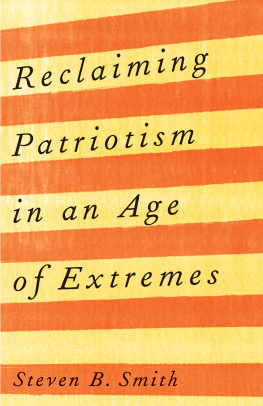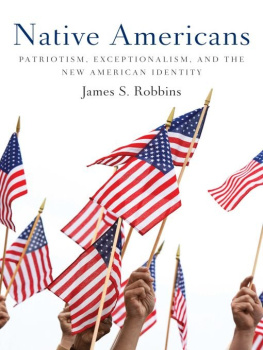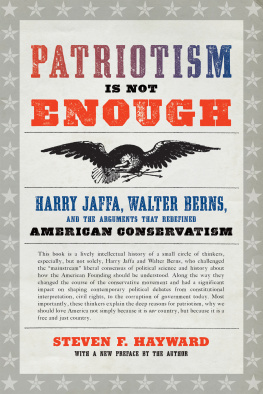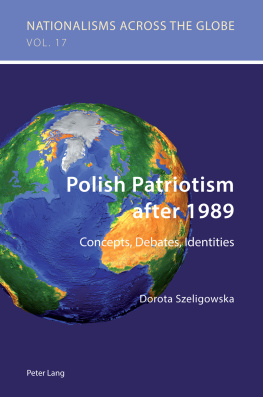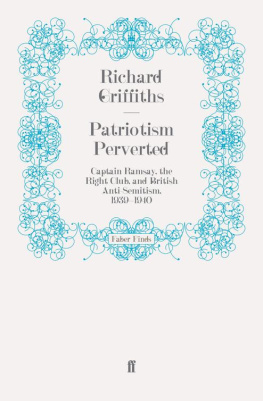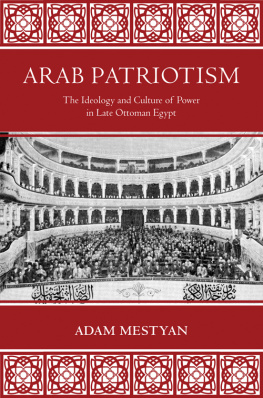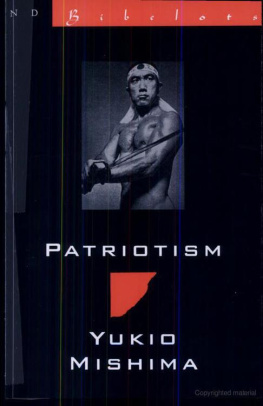RECLAIMING PATRIOTISM
IN AN AGE OF EXTREMES

Published with assistance from the foundation established in memory of Amasa Stone Mather of the Class of 1907, Yale College.
Copyright 2021 by Steven B. Smith.
All rights reserved.
This book may not be reproduced, in whole or in part, including illustrations, in any form (beyond that copying permitted by Sections 107 and 108 of the U.S. Copyright Law and except by reviewers for the public press), without written permission from the publishers.
Land of Hope and Dreams by Bruce Springsteen, copyright 2000 Bruce Springsteen (Global Music Rights); reprinted by permission; international copyright secured. All rights reserved.
Excerpt from The Adventures of Augie March by Saul Bellow, copyright 1949, 1951, 1952, 1953, renewed 1977, 1979, 1980, 1981 by Saul Bellow; used by permission of Viking Books, an imprint of Penguin Publishing Group, a division of Penguin Random House LLC. All rights reserved.
Yale University Press books may be purchased in quantity for educational, business, or promotional use. For information, please e-mail (U.K. office).
Set in Janson and Monotype Van Dijk types by IDS Infotech Ltd.
Printed in the United States of America.
ISBN 978-0-300-25404 4 (hardcover : alk. paper)
Library of Congress Control Number: 2020942570
A catalogue record for this book is available from the British Library.
This paper meets the requirements of ANSI/NISO Z39.48-1992 (Permanence of Paper).
10 9 8 7 6 5 4 3 2 1
To Rick and Jane Levin
and the things we care about
I am an American, Chicago born.
SAUL BELLOW , The Adventures of Augie March
Contents
Preface
What is patriotism, and who is a patriot? Does patriotism require us to affirm my country right or wrong or to protest at injustice? What should we do if patriotism or love of country conflicts with other loyalties and obligations? Is patriotism even a virtue and, if so, what kind is it? Has patriotism outlived its usefulness? These apparently simple questions form the core of this book.
I am not alone in asking these questions. Books about patriotism are a dime a dozen. The most familiar kind is the book written by some earnest American, often a celebrity or other well-known figure, affirming his or her faith in flag and country. My favorite work in this genre is Black Belt Patriotism, by the martial arts action hero Chuck Norris. There is also a serious philosophical literature on patriotism that has grown out of Alasdair MacIntyres classic article Is Patriotism a Virtue?, which asks whether it is possible to give ethical preference to ones own country if this offends universal standards of justice. I believe it is, and will explain why later in this book.
There is much of value in this short work, but since it was written before 2001, it could not anticipate the renewed attention given to national security, immigration, and the rise of ethno-nationalismthemes that have framed recent debates over American national identity. No doubt some future events will make my own analysis seem equally innocent, but that is a danger for anyone who commits pen to paper. This book is for this moment.
I would like to thank several people for reading and making invaluable suggestions toward improving this book. I want to thank my editor, William Frucht, for his support throughout the various stages of seeing this book through to completion. Special thanks go to David Bromwich, Bryan Garsten, Tony Kronman, and Russ Muirhead for agreeing to participate in a workshop where they went over every aspect of the manuscript with a fine-toothed comb, asking deep and probing questions. My former student and now consigliere, Justin Zaremby, provided characteristically penetrating insights. John Dearborn, my former teaching assistant and now colleague in Yales Center for the Study of Representative Institutions, gave further of his time and intelligence. Rabbi Nahum Braverman read the entire manuscript and made several useful comments. Andy Lipka, using his ophthalmologists eye, X-rayed the book as no one else had. I would like to acknowledge the help of Rogers Smith and Joshua Cherniss for reading an earlier paper titled Patriotism as Loyalty, which appeared in the Fall 2019 issue of Social Research. Last but not least, I would like to thank my sharpest critic, my wife, Susan, for responding to my complaints and helping to keep the book on track.
RECLAIMING PATRIOTISM
IN AN AGE OF EXTREMES
Introduction
I N 1782, a French immigrant named Hector Saint-Jean de Crvecoeur asked in his Letters from an American Farmer, What is the American, this new man? We have never stopped asking this question.
One answer, standard for generations, is that an American is someone who subscribes to the principles set out in our founding documents, the Declaration of Independence and the Constitution. America is, on this account, a creedal nation, perhaps the first in history, with Americans defined by an adherence to certain beliefs about equality, liberty, individual rights, and limited government. This idea of America as a creedal nation goes back to Alexis de Tocqueville, who found the peculiarity of our national experienceat least in relation to Europeto be the absence of a feudal past, that is, the lack of a tradition of hierarchy, hereditary aristocracy, and serfdom (which, of course, is not quite true). What impressed him most about the American experience was what he called the generative fact of equality from which all else derived. We could call this Tocquevilles Thesis. It forms the traditional core of American patriotism.
As Tocqueville outlined it, the American creed was by and large a liberal one. It grew out of the fortuitous combination of an extensive territory, a Protestant political culture, and an entrepreneurial middle class that was at liberty to pursue its economic purposes largely free of government supervision. There was a pleasing openness and even universalism about these aspirations. The American creed was understood as a product not of geography, tradition, or inheritance, but of reason. Its principles were not ours in any parochial sense, but the property of all who wanted to participate in the blessings of liberty. Anyone, on this account, could become an American. It requires only a willingness to express support for our founding creed and live by it. This conception of American selfhood has been developed and repeated by many of our most incisive students of politics, including Martin Diamond, Samuel Huntington, and Seymour Martin Lipset.
Today this Tocquevillian conception of America is under assault from those who regard Americans as less a creedal people than an ethnic nation. The new nationalism, not only in America but throughout the world, is about identity rather than aspiration. Taking a page from the multicultural left, it turns the nation into the ultimate identity group. Not race, class, or ethnicity, but national identity is said to form the core of peoplehood. The people in their collective capacity are said to define the nationbut what defines the people? The concept of the people and who speaks for them is one of the most contentious in current politics. It is a weapon for defining who is in and who is out. Nationalism is by definition exclusionary. Its appeal is often explicitly xenophobic, identifying enemiesboth foreign and domesticas posing an existential threat to the solidarity and purity of the nation.
The new nationalism was given powerful expression in July 2019 at the National Conservatism Conference held at the Ritz-Carlton Hotel in Washington, D.C. There a range of media celebrities, policy analysts, journalists, and academics sought to give voice to this newfound sentiment of national solidarity. Today, the conference organizer declared, is our Independence Daymeaning independence from neo-conservatism, libertarianism, and what they call classical liberalism. Although the group sponsoring the conference calls itself the Edmund Burke Foundation, it seems to lack Burkes Whiggish sense of moderation and political prudence. It aims not to preserve but to overthrow what it sees as the hegemony of classical liberalism espoused by John Locke, Baron de Montesquieu, and Tocqueville. The face of national conservatism is no longer Friedrich Hayek but Martin Heidegger.
Next page
